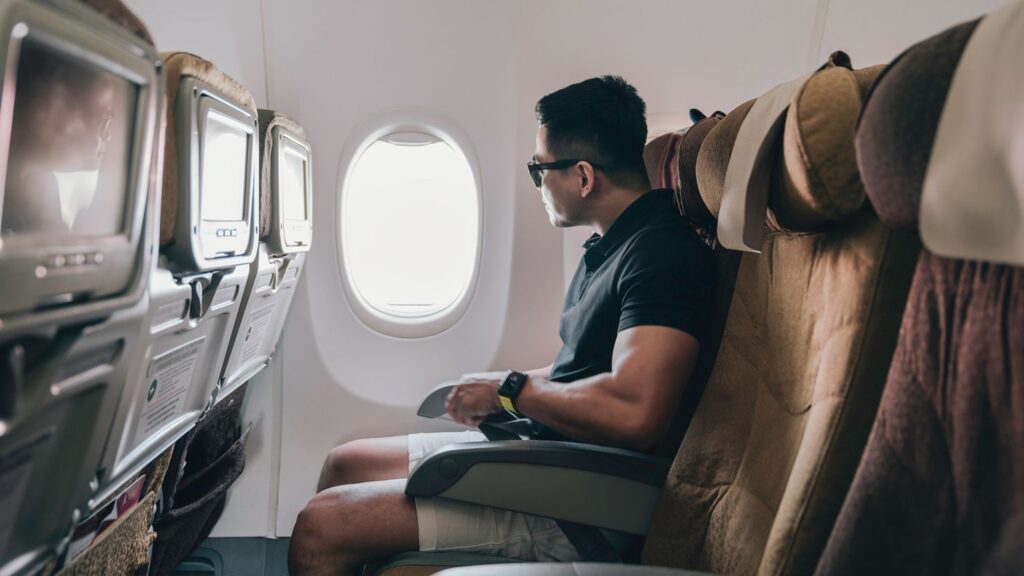After two deadly plane crashes in the past week—one in Washington, D.C., that claimed 67 lives, and another in Philadelphia, killing 7 and injuring 19—experts say it’s natural for travelers to have a Fear of Flying.
“Given the fact that there were two incidents that were pretty large in the past seven days, I would say people that are on the fence about whether or not to book that vacation are probably hesitant to do that,” said psychotherapist and licensed aviator Michaela Renee Johnson.
The Psychological Impact of Aviation Disasters
According to the Cleveland Clinic, around 25 million adults in the U.S. experience a fear of flying, known as aerophobia. While flight anxiety is common, high-profile aviation tragedies can intensify these fears, especially when there are casualties involved, said aviation law expert Robert Clifford.
“People tend to immediately think, ‘Uh-oh, they all must be unsafe, and it must be a huge risk for me to fly’—and they question whether or not they should get on the next flight they have scheduled,” Clifford told media.
Media psychologist Don Grant explained that the way these crashes are portrayed in the media can trigger new fears or amplify existing ones.
“If you already have a fear of flying, then you see something like this, it’s like the monsters under the bed are actually real,” Grant said.
The Brain’s Response to Flight Anxiety
Johnson noted that when tragic events occur, the brain activates survival mechanisms like the fight-or-flight response, which can cause travelers to perceive flying as a greater risk than it actually is.
“Yes, our brain is doing what it’s supposed to be doing by assessing the risk, but it’s not really considering the fact that in perspective, it’s actually an incredibly safe way to travel,” she told media.

Is Flying Still Safe? The Numbers Say Yes
Despite recent incidents, experts maintain that flying remains the safest form of transportation.
A 2024 study from the Massachusetts Institute of Technology found that the death risk per boarding for worldwide air travelers was 1 in 13.7 million between 2018 and 2022. The study also noted that aviation fatalities have declined by 50% per decade over the last 50 years.
In August 2024, the Department of Transportation reported that 86.8 million passengers traveled by air. However, it remains to be seen if these numbers will be affected by recent tragedies.
How Travelers Are Reacting
Johnson believes that frequent business travelers are less likely to alter their flight plans, while occasional travelers—such as those taking vacations—may hesitate to book flights.
Regardless of the statistics, many people feel uneasy about giving up control while flying.
“We’re sitting in the back, we don’t know how to fly an airplane, we don’t know what’s happening up front, we don’t know what’s happening in the air around us,” Johnson explained. “That can create a lot of discomfort for people. You have to talk yourself through the idea that the pilots also want to get home that night.”
Tips for Managing Flight Anxiety
For those struggling with the fear of flying, Johnson recommends:
- Journaling to process thoughts and emotions
- Avoiding flights during winter or hurricane seasons
- Writing preemptive letters to loved ones (as a way to cope with worst-case scenario thinking)
However, she also challenges people to reframe their fears:
“How much of your life are you willing to sacrifice for the fear that you may die?” Johnson asked. “None of us is getting off the planet alive.”
Families Mourn at Potomac River After Deadly Midair Collision
A Simple Strategy: Step Away from the Screen
Grant suggested that limiting exposure to news coverage of aviation disasters can help alleviate anxiety.
“Put the phone down,” he advised. Instead of doom-scrolling, he recommends:
- Reading reliable sources for factual information
- Learning how airplanes work to build confidence in aviation safety
- Joining an aerophobia support group to connect with others facing similar fears
Final Thoughts
While recent crashes have understandably shaken many travelers, the reality remains that air travel is statistically safer than driving, biking, or even walking. For those who feel overwhelmed, education, therapy, and mindful coping strategies can help ease the anxiety and keep travel plans intact.






